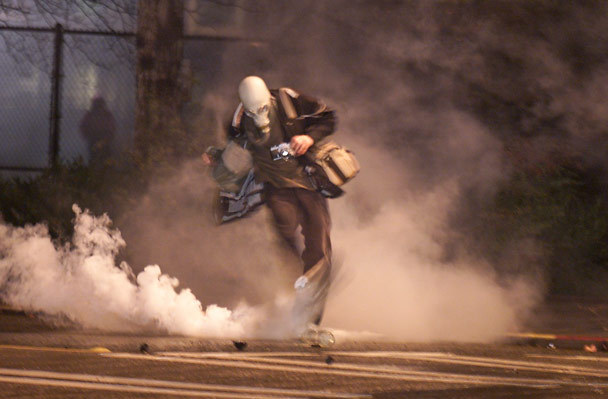 10 years ago: the “Battle in Seattle” WTO riots
10 years ago: the “Battle in Seattle” WTO riots
The World Trade Organization came to Seattle ten years ago.
Protests and riots ensued.
Seattleites won’t soon forget the tear gas, smashed windows, police in riot gear, out-of-town “anarchists,” giant ninja turtles, and chants of “The whole world is watching!”
Of course, the tension between international trade and human rights that existed then still exists today.
This is evident in the recent seizure of Indian-made pharmaceuticals in the Netherlands on their way to Brazil. Free trader Roger Bate writes the drugs were seized not because they were counterfeit, but because they allegedly violated European Union patents — even though they were not subject to patent protection in either India or Brazil.
These seizures seemingly pit drug companies against those in need.
As a Brazilian representative to the European Union put it: “Many new worldwide measures aggressively protect pharmaceutical monopolies under the guise of fighting counterfeits – blocking competition and jeopardizing global access to medicines in the process…. Rather than investing taxpayer dollars enforcing private rights, public bodies should promote price-lowering competition, drug quality and affordable access to medicines.”
This isn’t the case with seizing counterfeit medicine, which Mr. Bate argues benefits everyone but the counterfeiter.
“Let’s be clear about what enforcing a private property right actually means. A trademark violation means that a trader or manufacturer is trying to mislead the public as to the true identity of a product. Such a drug may act as intended, but how can the public trust it if the manufacturer hides his identity? Indian companies have their products faked, just like Western companies. Enforcing trademarks and other labeling infractions improves public health.”
The dispute over the seizure appears headed to the WTO for resolution.
Photo credit: Rod Mar / The Seattle Times